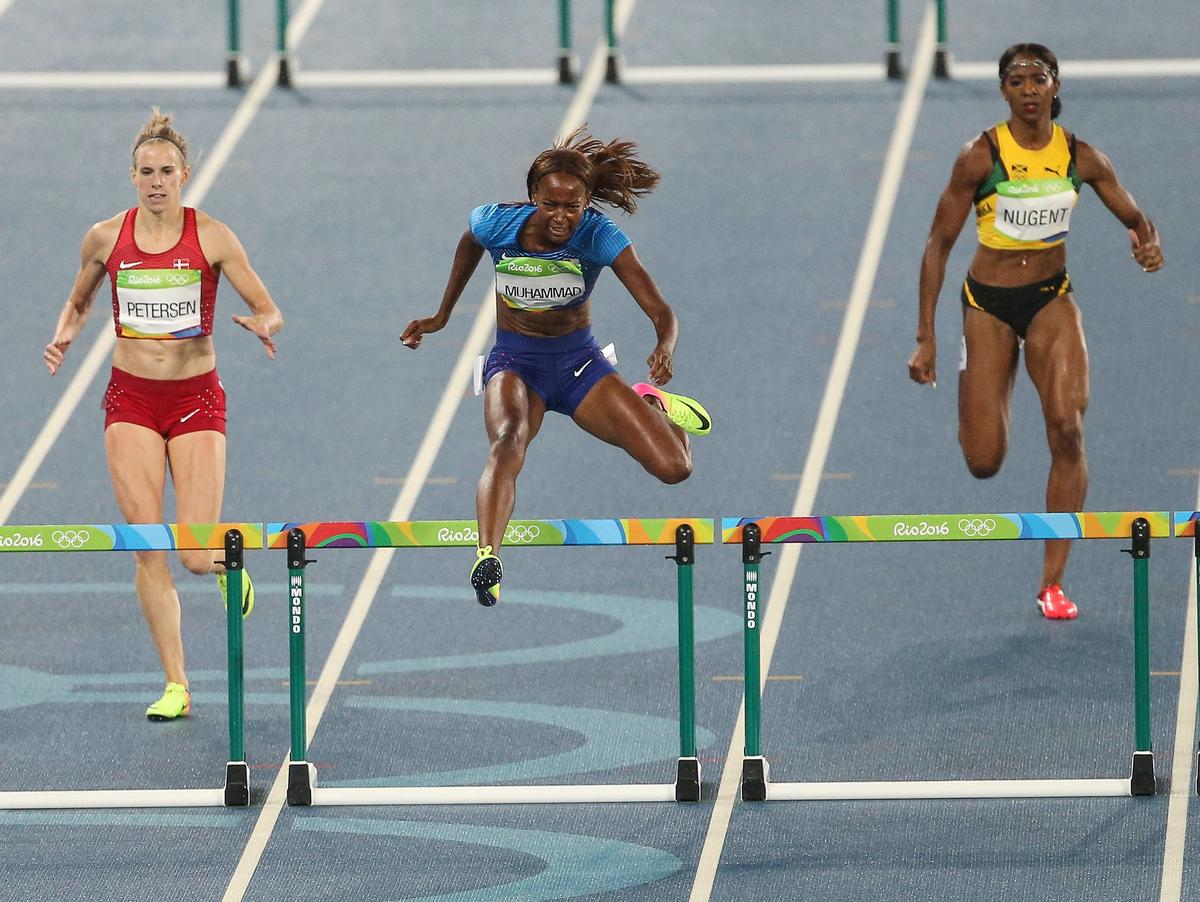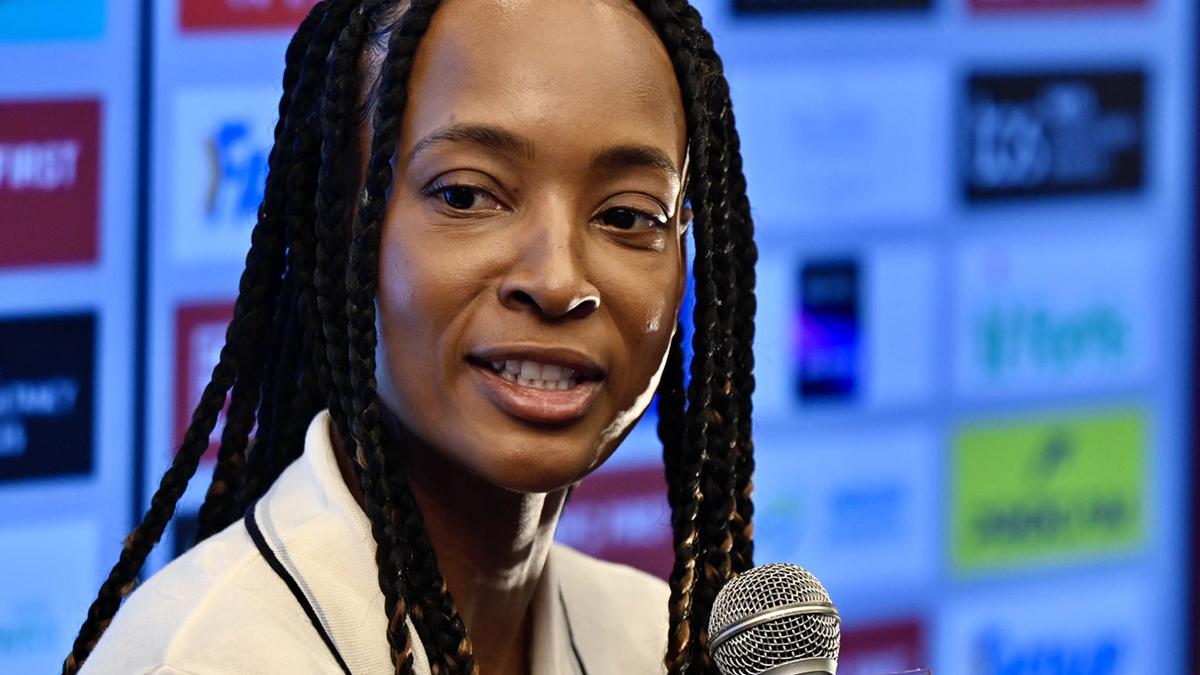A disappointing show at the 2012 United States Olympic trials only added fuel to Dalilah Muhammad’s desire to become a world-class athlete.
From finishing 16th and failing to make it to London, Dalilah fashioned a glorious turnaround to claim the women’s 400m hurdles gold medal at the 2016 Rio Olympics. Far from done, she added two Olympic medals at Tokyo 2020 (400m hurdles silver, 4x400m relay gold). The 35-year-old American, the International Event Ambassador for the 17th edition of the TCS World 10K Bengaluru, spoke about her glittering career and more. Excerpts:
You broke the 400m hurdles world record at the 2019 World championships. Could you talk us through that experience?
There was a feeling that something special was about to happen. Whether that was going to be the world record, I did not know. I definitely thought I was capable of running fast. My coach had told me I was capable of breaking the world record. My self belief was cemented when my training partner, Brianna Rollins-McNeal, looked at me and said that she couldn’t wait to see me do it. It was already planted in her mind. She believed it so much, and it made me truly believe too.

Dalilah Muhammad of the USA competes in the Women’s 400m Hurdles Final of the Rio 2016 Olympic Games.
| Photo Credit:
FILE PHOTO
From missing London 2012 to winning gold in Rio 2016, that is quite an extraordinary story. Tell us about your mindset in that four year period.
Going into college, I always had the mindset that being a professional athlete was next. I thought it was my God-given right. Up until that point, I had always been good. I was a child star.
But by the time 2012 came along, that was not the reality because it came to a point where your talent can only take you so far. I was not putting in the work required to be a professional athlete. I had to change the way I did things, my diet, my mindset, my work ethic…After that 2012 Olympics disaster, I had to fight harder to do more.
That first year of training after 2012 was the hardest period. I went to train with Lashinda Demus, who was the top 400m hurdler in America. Training with her and seeing her work ethic really pushed me to a different mindset.
You ran your season best time at the Botswana Grand Prix (53.81s) earlier this month, but you have announced that 2025 will be your last season. What brought about the retirement announcement?
The plan was to retire at the 2024 Olympic Games. I was hoping that I would make it to Paris, but I missed out. I took the time to prioritise being healthy, free from injuries and the strongest I can be.
That is why I pushed the retirement to 2025. The World championships at Tokyo is the last competition on my schedule. People expect you to exit the sport when you can no longer do it at all. I want to go out knowing that I can still push myself.
Tell us about your post-retirement plan. Do you want to get into coaching?
A sportsperson’s next step is to go into coaching. But for me, I want to have a global presence and bringing more competitions to our sport. This will bring more opportunities for athletes, and will open the door for more women athletes. I want to bring races to places where athletics has not been to before.
World Athletics has now introduced prize money at the Olympics. This was not well received by other federations, who believe that Olympic pride should not be tainted with prize money. What are your thoughts about this?
Why should athletes not be able to make money from the Olympics? I think most athletes do this because we love it. We don’t do it for the money. However, we need ways to support ourselves. Being at such a high level, such as the Olympics, athletes should definitely be able to make a living from that.
The Grand Slam Track is a new, almost revolutionary way of looking at how to conduct athletic events. Do you like the idea of the Grand Slam Track?
I absolutely love it. Track and field has come such a long way, but there’s still so much further it can go. The idea is to make our sport a professional sport, where every single athlete has a professional contract. The Grand Slam is trying to push for this, and it gives athletes more opportunities to make money and really show who we are and what we are capable of.
World Athletics has stated that they will soon introduce a one-time genetic testing for athletes who want to compete in the women’s category. Do you support this move?
This is such a touchy subject, especially in this current climate of what identifies as woman, what are the parameters for each gender. I have read Caster Semenya’s book. Having read how evasive and traumatising some of these procedures can be, I am a bit hesitant about gender testing.
Faith Kipyegon will soon attempt to become the first woman to run a sub four-minute mile. Do you think she can do it?
I’m just amazed. I’m in awe. I need to be there in person when she attempts it in Paris. It is hard for me to even put into words what that means for women in sports. One of my college coaches was actually the third man to have run a sub-four mile. That was not that long ago, so for a woman to even attempt it is crazy. I’m always excited to see barriers broken by women in sport.
The TCS World 10K Bengaluru has always seen a high percentage of participation from women. Tell us about the role of women in sports and athletics.
I think sports has come such a long way for women. Even my event, the 400m hurdles, the first women’s championship happened only in the 1980s. For me, sports has pushed me to new places, to meet new people. It was truly empowered me through leadership, taught me discipline and all of those great things.
There are a lot of run clubs in India, and you have been involved in run clubs at a young age. Tell us about the community aspect of running…
It’s just so much fun when you’re running together as a group. My enjoyable experiences in running is when I’m running for fun and running with people who want to unite and have that common goal to get out there and move their bodies. Running brings people and communities together. I’ve run since I was seven years old. At the time, I ran with a local track club. Those are my favourite days and memories as a child — walking to practice, because I wanted to be there with my friends.
Published – April 29, 2025 11:27 pm IST


